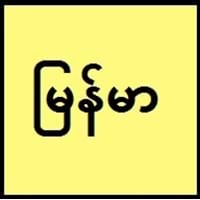Burmese vs Chinese
- The naming of people in Burmese is strange. There is no last name, often name is rhymed such as Ming Ming, Mo Mo or Jo Jo.
- It appears as odd language to many people because it has peculiar pitch register, tonal form as language.
- Chinese language is tonal, since meaning of a word changes according to its tone.
- In Chinese language, there is no grammatical distinction between singular or plural, no declination of verbs according to tense, mood and aspect.
Burmese and Chinese Language History
Comparison of Burmese vs Chinese language history gives us differences between origin of Burmese and Chinese language. History of Burmese language states that this language originated in 1113 AD whereas history of Chinese language states that this language originated in 1250 BC. Family of the language also forms a part of history of that language. More on language families of these languages can be found out on Burmese and Chinese Language History.
Burmese and Chinese Greetings
People around the world use different languages to interact with each other. Even if we cannot communicate fluently in any language, it will always be beneficial to know about some of the common greetings or phrases from that language. This is where Burmese and Chinese greetings helps you to understand basic phrases in Burmese and Chinese language. Burmese word for "Hello" is မင်္ဂလာပါ (maingalarpar) or Chinese word for "Thank You" is 谢谢 (Xièxiè). Find more of such common Burmese Greetings and Chinese Greetings. These greetings will help you to be more confident when conversing with natives that speak these languages.
Burmese vs Chinese Difficulty
The Burmese vs Chinese difficulty level basically depends on the number of Burmese Alphabets and Chinese Alphabets. Also the number of vowels and consonants in the language plays an important role in deciding the difficulty level of that language. The important points to be considered when we compare Burmese and Chinese are the origin, speaking countries, language family, different greetings, speaking population of these languages. Want to know in Burmese and Chinese, which language is harder to learn? Time required to learn Burmese is 44 weeks while to learn Chinese time required is 88 weeks.





